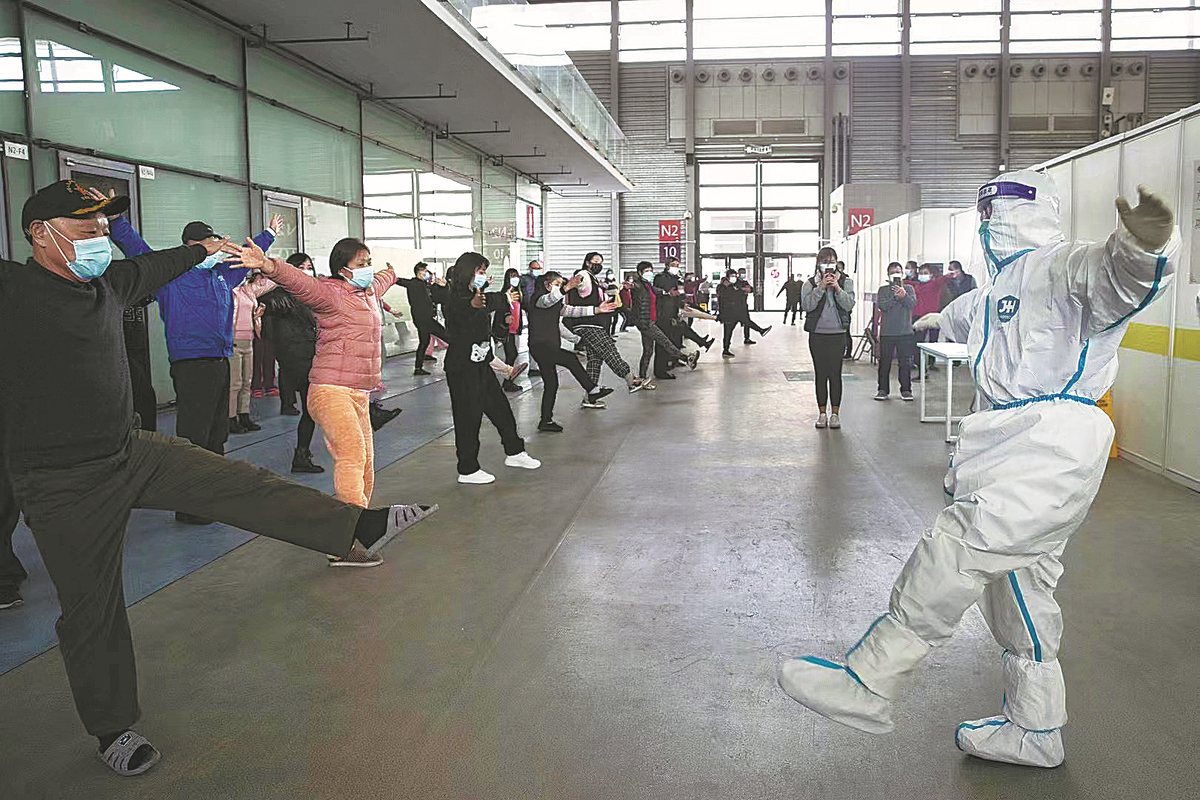Shanghai acts to ensure swift quarantine measures


Shanghai is racing against time to ensure the swift quarantine of COVID-19 patients to break the transmission link of the virus and curb the current outbreak, which has caused more than 73,000 new infections since March.
The city reported 13,354 new infections on Tuesday after mass testing of more than 25 million residents, which was completed with the help of more than 38,000 medical workers from across China. The vast majority of new infections were asymptomatic, health officials said, and there were 268 confirmed cases.
Describing the current outbreak as "an extremely grim situation", Gu Honghui, deputy secretary-general of the municipal government, told a news conference on Tuesday that the current lockdown will remain in place until analysis of all the tests is completed.
"When a new COVID-19 case is confirmed, the patient should be transported to a designated quarantine facility at once. The work should be done on the same day, and we should make sure not a single case is missed," Gu said.
Vice-Premier Sun Chunlan, who started an inspection visit to Shanghai on Saturday, stressed that the most important task at the moment is to expand the number of makeshift hospitals.
During an inspection tour to a quarantine facility in Jiading district and a makeshift hospital in Huangpu district, Sun said quarantine and treatment work need to be quicker than the spread of the virus, and the construction of more of these facilities should be accelerated.
Shanghai is experiencing its worst COVID-19 outbreak in two years. While most of the infected are asymptomatic, they have to be quarantined to break the chain of transmission of the highly infectious Omicron subvariant, the dominant strain in the current outbreak.
To ensure the swift transport and quarantine of infected people. Shanghai has put into use 47,700 quarantine beds, with another 30,000 to be ready soon, Gu said.
The city has also transformed 62 hotels, sports stadiums, expo centers and other large venues into temporary quarantine facilities, Gu said.
The reconfiguration of the National Exhibition and Convention Center to become a makeshift hospital with a capacity of 40,000 beds has also started on Tuesday.
Hotel chains have cooperated with the local government to turn their hotels into quarantine facilities and accommodate medical staff coming from other provincial-level regions as well as essential workers such as deliverymen.
Li Dong, general manager of Novotel Shanghai Hongqiao, said 120 medical workers from Tianjin arrived on Sunday night to stay at the hotel.
"All of our staff immediately went back to work. The front desk opened all lanes to shorten their check-in time, and the chefs went to the kitchen to cook meals for the medics," Li said. "We will do our best to serve these heroes who rush to help Shanghai in this hard time."
Gu said the government is still working on an analysis of the current outbreak, and will announce follow-up measures on community controls as soon as possible.
"We urge residents to cooperate with the current epidemic control (measures) and stay at home except for special reasons such as hospital visits," he said.
Authorized permits issued to vehicles involved in epidemic prevention and control, emergency medical treatment, transportation of daily necessities, urban operation and personnel transfer are still valid, Gu said.
The city has also initiated an emergency mechanism to guarantee food and vegetables are transported from 130 production bases in other provincial-level regions to 10 major supply warehouses in the city. A logistics group-including drivers, supermarket workers and community volunteers-h(huán)as been organized to deliver daily necessities to households.





































